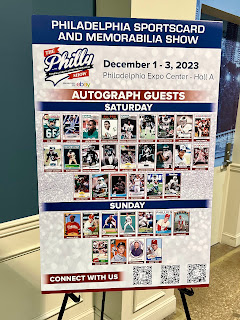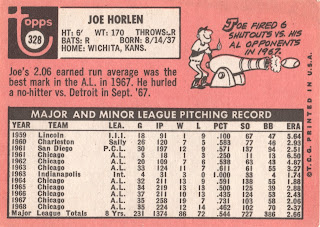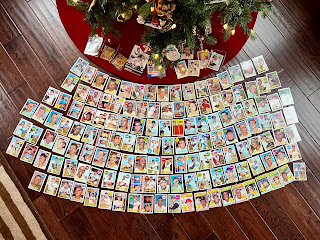Anthony Richard Conigliaro
Boston Red Sox
Outfield
Bats: Right Throws: Right Height: 6'3" Weight: 185
Born: January 7, 1945, Revere, MA
Signed: Signed by the Boson Red Sox as an amateur free agent, October 10, 1962
Major League Teams: Boston Red Sox 1964-1967, 1969-1970; California Angels 1971; Boston Red Sox 1975
Died: February 24, 1990, Salem, MA (age 45)
Tony Conigliaro was perhaps on the way to a career as a baseball superstar when a Jack Hamilton (#629) fastball hit him in the face, shattering his cheekbone and causing permanent eye damage. Conigliaro made his debut in 1964, hitting a home run in his first at-bat at Fenway Park and setting the single-season record for home runs by a teenager with 24. He then settled in as the team's regular right fielder in 1965 and 1966, earning MVP votes in both seasons. He was selected for the All-Star team in 1967 and was on his way to a career year when Hamilton's pitch hit him on August 18th. Conigliaro missed the entire 1968 season before making a successful comeback in 1969, earning American League Comeback Player of the Year honors.
Tony Conigliaro was perhaps on the way to a career as a baseball superstar when a Jack Hamilton (#629) fastball hit him in the face, shattering his cheekbone and causing permanent eye damage. Conigliaro made his debut in 1964, hitting a home run in his first at-bat at Fenway Park and setting the single-season record for home runs by a teenager with 24. He then settled in as the team's regular right fielder in 1965 and 1966, earning MVP votes in both seasons. He was selected for the All-Star team in 1967 and was on his way to a career year when Hamilton's pitch hit him on August 18th. Conigliaro missed the entire 1968 season before making a successful comeback in 1969, earning American League Comeback Player of the Year honors.
In 1970, he reached career highs in both home runs (36) and RBIs (116), while sharing the Red Sox outfield with his brother Billy. Following that season he was traded to the Angels. Crushed by being traded from Boston, and hampered by headaches and vision problems, Conigliaro struggled with the Angels and announced his retirement on July 9, 1971. He made a brief comeback attempt with the Red Sox in 1975, appearing in 21 games. Over 8 seasons, Conigliaro batted .264 with 166 home runs and 516 RBIs.
Some text for this post originally appeared on my 1965 Topps blog.
The Card / Red Sox Team Set / Accuracy Index +5
1969 Season
After missing the entire 1968 season, and dabbling with the idea of converting to a pitcher, Conigliaro made the club out of spring training in 1969, and was the Red Sox opening day right fielder. His hard work and perseverance paid off, as Conigliaro made 135 starts int he outfield, mainly in right. He batted .255 with 20 home runs and 82 RBIs, bettering the pace he was on at the time of his injury in 1967.
Other Notable Baseball Cards
First Mainstream Card: 1964 Topps #287
Topps Flagship Set Appearances (8): 1964-1971
Most Recent Mainstream Card: 2003 Flair Greats #99
Total Non-Parallel Baseball Cards: 88 in the Beckett online database as of 6/9/24.
Sources:
Baseball Reference / SABR / Wikipedia
Building the Set / Card #316
December 3, 2023 from The Philly Show (Uncle Dick's Cards)
Doug and I returned to The Philly Show in early December, once again held inside the Greater Philadelphia Expo Center in Oaks, Pennsylvania. eBay has taken over sponsorship of the show, with the quaint, bubble-lettered Philly Show logo that had been in place since the 1980s replaced with a more modern logo, keeping with the times. I wrote about the show in a post over at The Phillies Room.
December 3, 2023 from The Philly Show (Uncle Dick's Cards)
Doug and I returned to The Philly Show in early December, once again held inside the Greater Philadelphia Expo Center in Oaks, Pennsylvania. eBay has taken over sponsorship of the show, with the quaint, bubble-lettered Philly Show logo that had been in place since the 1980s replaced with a more modern logo, keeping with the times. I wrote about the show in a post over at The Phillies Room.
Similar to my strategy from March, I wanted to focus on accumulating commons and having found success with Uncle Dick's Cards before, I didn't mess around and headed right for the neon green binders. I pulled 145 cards from the binder containing cards 301 to the end of the set, stopping when I reached 500. This card was the 24th of 145 cards purchased for our set, and after the dealer discount due to my bulk purchase, it cost me a little over $2.
The Card / Red Sox Team Set / Accuracy Index +5
With a photo taken at the same time as the photo used for his 1968 Topps card, this is a great card and I'm sure Boston collectors were happy to see another Conigliaro card in their packs in 1969. The back of the card summarizes what accounted for the missing line of statistics for the 1968 season. The cartoon references Conigliaro's side job as a musician, and his SABR biography notes he was "a bona-fide celebrity and singer with a couple of regional hit records to his credit."
Accuracy Index: Conigliaro's card scores a +5.
1969 Season
After missing the entire 1968 season, and dabbling with the idea of converting to a pitcher, Conigliaro made the club out of spring training in 1969, and was the Red Sox opening day right fielder. His hard work and perseverance paid off, as Conigliaro made 135 starts int he outfield, mainly in right. He batted .255 with 20 home runs and 82 RBIs, bettering the pace he was on at the time of his injury in 1967.
|
|
|
|
|
First Mainstream Card: 1964 Topps #287
Topps Flagship Set Appearances (8): 1964-1971
Most Recent Mainstream Card: 2003 Flair Greats #99
Total Non-Parallel Baseball Cards: 88 in the Beckett online database as of 6/9/24.
Sources:
Baseball Reference / SABR / Wikipedia






















































